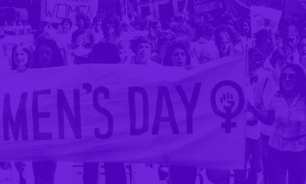IWD: #EmbraceEquity with Duncan D'Penha, Head Of Human Resources at Everstone Group
 by Vincent Yao
by Vincent Yao
This International Women's Day, I interviewed Duncan D'Penha, Head Of Human Resources at Everstone Group, and he shared his thoughts on how we can #EmbraceEquity.
Equity can be defined as giving everyone what they need to be successful. The IWD 2023 campaign theme seeks to forge worldwide understanding about why equal opportunities aren’t enough, and a focus on gender equity needs to be part of every society’s DNA.
International Women’s Day belongs to everyone, everywhere. Collectively, we can all help create a diverse, equitable and inclusive world.
1. Do you think that more companies adopting a hybrid working pattern has helped to shift pre-conceived conceptions about flexible working for women, and why?
Yes, after the pandemic, a lot more organisations are open to adopting a hybrid working pattern which has facilitated to shift preconceived notions about flexible working for the workforce, especially for women. Flexible work arrangements have proved to provide a more equitable work-life integration for all genders, permitting them to better manage their commitments at home and in the workplace. Hence, a larger number of employees are now vocal within organisations about the need for flexible work provisions. This has helped to reduce the stigma around flexible working and create a more inclusive work environment, especially for women.
2. What does being an effective ally for women look like to you?
Being an effective ally for women includes but is not limited to, actively listening to women’s experiences and perspectives and being open to learning from them and taking the time to understand various forms of gender-based discrimination that occur and how we all intentionally or unintentionally contribute to that discrimination. Another is standing for and supporting women’s issues, standing up to sexism and misogyny, and speaking out against all forms of injustice. Supporting women-led initiatives, volunteering at women-led organisations or mentoring women within your community. Stand up to support gender equality around you, whether it is reproductive rights, pay equity and other issues that affect women. Advocate for solutions that are rooted in equity and inclusion.
3. What is your top advice for making job descriptions more inclusive?
To be inclusive and effective, job descriptions should focus more on the skills and qualifications required for the job rather than gender-specific words or language. Avoid using pronouns such as “he” or “she”, and instead use terms such as “the successful candidate”. Use neutral language when describing the job and consider removing any requirements that could be seen as discriminatory. Ensure your description does not contain requirements or preferences that may screen out certain groups of people. Additionally, use a variety of sources to promote the job, such as job boards, social media, and networking events, to reach a more diverse audience.
4. What advice would you give women in the industry you work in?
My advice to aspiring women in my industry would be to stay focused on your goals and never give up. Be true to who you are as a person, and do not aim to be a clone of who you see around you. Be realistic with your responsibilities and expectations, and do not shy from asking for help. It is important to never underestimate yourself and never lose focus of your goals. Additionally, it is important to stay up to date on the latest trends and technologies and network with others in the industry to stay informed and to build supportive relationships. Get a mentor who can guide you along. Finally, don’t be afraid to take risks and challenge yourself and don’t be afraid to fail. The best leaders have learnt from past failures.
5. What do you think is the most significant barrier to female leadership?
Children, irrespective of gender, should be treated equally by parents, guardians and educators and should be provided with the same opportunity and encouragement. Gender bias and stereotypes are the most significant barrier to female leadership in the workplace. Women often face more scrutiny and censure than their male counterparts and are held to higher standards when it comes to job performance. This could hinder women’s confidence in their own abilities, which can hamper their capability to take on leadership roles. Additionally, there is still a significant lack of role models of women in senior positions, which can make it difficult for women to aspire to leadership roles.
Fresh Content
Explore our latest market insights, career advice, and more.



















